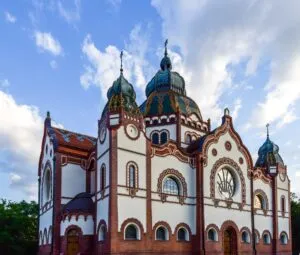AFS aims to provide 30% of our students with scholarships or grants
Find out about our range of scholarships, grants and fundraising
Find out about our range of scholarships, grants and fundraising
The peace camp can be added to the August-November programme
Programme Price TBC, * Subject to Confirmation from AFS Serbia
AFS students live all over Serbia, from small towns in the Pannonian Plain in the north, the more mountainous southern region and the capital city Belgrade. Serbian families enjoy gathering for Sunday lunch to discuss the events of the week, and relaxing in front of television after a busy work day.
View this post on Instagram
You will probably attend a typical, university-preparatory high school in Serbia. School runs from September through June, (Monday through Friday) in two shifts: 8 am to 2 pm and 2 pm to 8 pm—and your school might alternate between these two options. All high schools offer general subjects, like math, Serbian language, English and another foreign language (like German or French), biology, geography, history, physics and chemistry. Some put more emphasis on sciences; others focus on social studies. Classes are lecture-oriented with some possibilities for individual or group projects.
The official language is Serbian, the only European language that actively uses two alphabets—Cyrillic and Latin. Having a basic knowledge of English will be helpful. AFS will provide materials, links and language lessons in the first three months of your stay. Also expect have intensive language courses at AFS orientations.
Serbian food is a mix of Turkish, Greek, and Hungarian ingredients and flavors. Meat (chicken, lamb or pork), vegetables, potatoes and rice make a daily menu in Serbia. Bread is commonly eaten with other dishes, like the popular sarma, stuffed cabbage rolls, ćevapi and pljeskavica—traditional minced meat dishes. Don’t miss out on all the delicious pastries, local cheeses and desserts.

“For anyone who considers coming to Serbia from New Zealand, I highly recommend it, it is a wonderful country filled with wonderful people.”
The PEACE Programme or PEACE through Exchange and Active Citizenship Education is a secondary school trimester programme which aims at empowering and enabling young people to become active citizens. The participants stay with host-families and go to high school in a European country. At the end of the programme, all participants of the PEACE programme come to Belgium for a five day long camp with a focus on Active Global Citizenship in Europe.